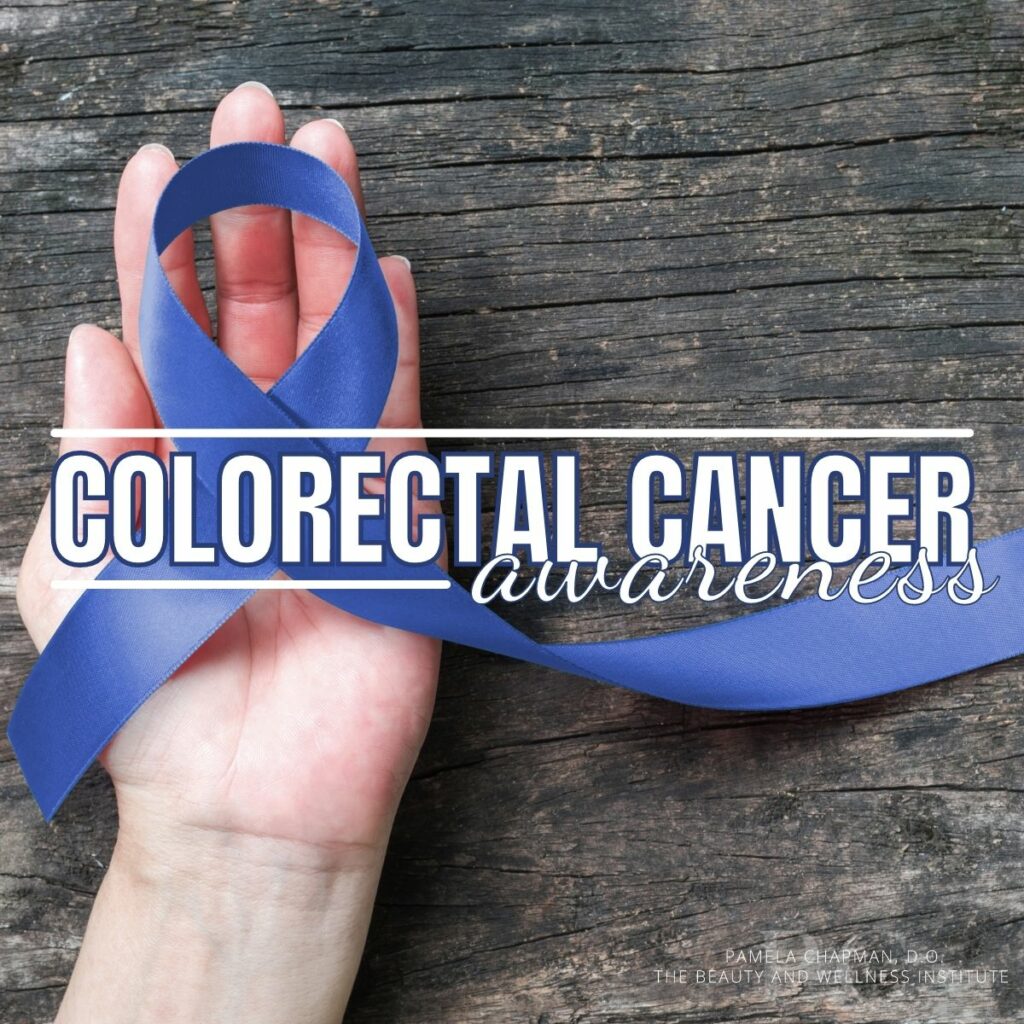This month, we take the time to focus on colorectal cancer: what it is, who’s at risk, and what you should do about it.
What is Colorectal Cancer
Colorectal cancer, or colon cancer, is the third most common cancer in the US, and the country’s second leading cause of cancer death—more than 50,000 deaths per year. This cancer starts in the lower portion of the digestive track, from the large intestine (colon) and the rectum. Colorectal cancer typical begins as polyps, which can become cancerous if they aren’t removed.
If left untreated, colorectal cancer can spread to other organs, including the liver and lungs.
Who’s at Risk for Colorectal Cancer?
Traditionally, risk for colorectal cancer becomes higher when you reach the age of 50, and risk continues to elevate as you age. Colorectal cancer affects all races and genders, but African Americans have the highest incidence rates and mortality rates for colorectal cancer. Obesity, inactivity and smoking also increase risk.
Since the 80s, cases of colorectal cancer in younger adults has been on the rise. Currently about 12% of colorectal cancer diagnoses are in patients under the age of 50. In August of 2020, colon cancer claimed the life of Black Panther star Chadwick Boseman. He was 43.
What Should You Do?
Early detection is key. People over the age of 50 should have regular screenings, and screenings should start younger if you’re in a high-risk group or have a history of colorectal cancer in your family.
Early colorectal polyps are easily treatable, but they often present with no symptoms. This is one of the reasons that colorectal cancer is so insidious. It’s also why health advocates continue to bang the drum: screening, screening, screening.
Talk to Your Doctor
As physicians, we want our patients to be proactive about their health, and to feel empowered to educate themselves and to make healthy decisions.
Discomfort and stigma are major barriers when it comes to colorectal cancer detection. But as doctors, this is a straightforward topic. I will bring up colorectal cancer during regular checkups, and my goal is always to make sure my patients are both comfortable and well informed. I’m happy to make myself available for a conversation about colorectal health, and to get the ball rolling so my patients get properly screened.
March is Colorectal Cancer Awareness Month—a great excuse to start the conversation today.

